Turkey Says It Arrested 8 Agents Of An Iranian Intelligence Cell
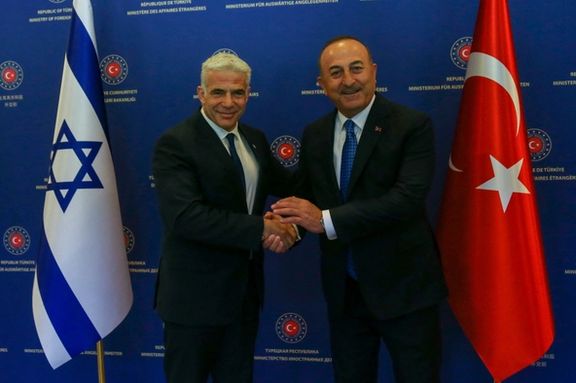
Turkey said Thursday it thwarted a planned attack against Israeli tourists in Istanbul, and detained eight suspects allegedly working for an Iranian intelligence cell.

Turkey said Thursday it thwarted a planned attack against Israeli tourists in Istanbul, and detained eight suspects allegedly working for an Iranian intelligence cell.
Turkey's National Intelligence Organization (MIT) revealed the operation on Thursday just before the arrival of Israel’s Foreign Minister Yair Lapid to Turkey, adding that the eight, who were not all Iranian nationals, were arrested in a raid in three houses in Istanbul’s Beyoglu district last week.
According to reports, Iranians planned to kidnap Israeli diplomats and tourists in Istanbul, including the former Israeli ambassador and his wife who were staying at a hotel in the city.
The agents were disguised as students, while members of Iran's Revolutionary Guards were undercover as businessmen and tourists, according to Hurriyet Daily News.
Turkish news agency İhlas Haber Ajansı said, "The hitmen in the assassination team, who settled in two separate rooms on the second and fourth floors of a hotel in Beyoglu, were (detained) with a large number of weapons and ammunition."
Israel's intelligence agency, Mossad, had already evacuated the targeted Israelis from their addresses to Tel Aviv on a private plane.
Israeli officials and media began issuing warnings to citizens against traveling to Turkey in the end of May, citing suspected killing or abduction plots by Iran, which has vowed to avenge the May 22 assassination of a Revolutionary Guards colonel in Tehran that it blamed on Israeli agents.

IRGC-linked news agencies have reported that the Guards' counter-intelligence chief Mohammad Kazemi has replaced Hossein Taeb as the IRGC's intelligence chief.
Tasnim quoted IRGC's Public Relations spokesman Ramazan Sharif as saying that IRGC Commander Hossein Salami has appointed Kazemi as the IRGC's new intelligence chief on Thursday, June 23.
IRGC social media outlets Wednesday night ended nearly two days of rumors about the "dismissal" of Taeb, announcing that he has been removed from his post, but he will be appointed to a higher position.
Sharif told Tasnim that Hossein Taeb has been appointed as an "adviser" to the IRGC commander, a clear sign that the former intelligence chief has been demoted. Meanwhile, the fact that Taeb's removal and Kazemi's appointment is announced by a low-key IRGC officer rather than Supreme Leader Ali Khamenei who directly oversees the IRGC Intelligence is another indication that Taeb has been dismissed from his job.
Tasnim placed the news about Taeb under its top story which is about Lavrov's visit in an elaborate attempt to downplay the development. The report's headline is also about Kazemi's appointment rather than Taeb's removal.
In recent weeks there were multiple mysterious incidents in which IRGC officers and operatives were killed or died in unexplained circumstances. Iran blamed Israel for some of the incidents.
According to Sharif, Kazermi has been the IRGC Intelligence Organization's counter-intelligence chief for many years and is highly experienced in intelligence and security matters. Kazemi is a brigadier general while Taeb was a cleric with some military experience that dated back to the 1980s war with Iraq.
According to political analyst Morteza Kazemian, Taeb, one of the most feared men in Iran's security system, was the second strongest man in the country's intelligence system only after Khamenei. Kazemian added that Taeb maintained good relations with Khamenei's son Mojtaba, a former comrade during the war.
Meanwhile, Kazemian suggested that Russian Foreign Minister Sergey Lavrov visiting Tehran on Thursday, possibly carried a message that revealed flaws in Taeb's performance. In a press conference in Tehran Lavrov Thuesday did refer to an "intelligence protection agreement|" with Tehran, wihtout elaboration.
Taeb was recently harshly criticized by social media activists and some politicians for failing to detect and prevent Israel's destructive operations in Iran.
Social media activists also said that the change on top of the IRGC Intelligence Organization revealed a divide in the organization that was already noticed after several leaks. On the other hand, the fact that an Israeli news outlet, Kaan News reported Taeb's removal from his post several days before its confirmation by Iranian officials, was another indication that Israel had access to insider information from the IRGC Intelligence Organization.
Furthermore, the choice of the new chief from the counter-intelligence unit, points out the fact that the reason for the change was something happening within the organization where Kazemi was in a better position to detect the leaks.
Social media activist and war veteran Hadi Mehrani said in a tweet that the change will have major repercussions and significant events are likely to take place in Iran.
The spokesman for Iran's Reform Front, Ali Shakouri Rad also said in a tweet on the same date that: Taeb's removal is a very important development which requires to be elaborated as the organization has a major role in elections and the running of the affairs of the state in Iran."
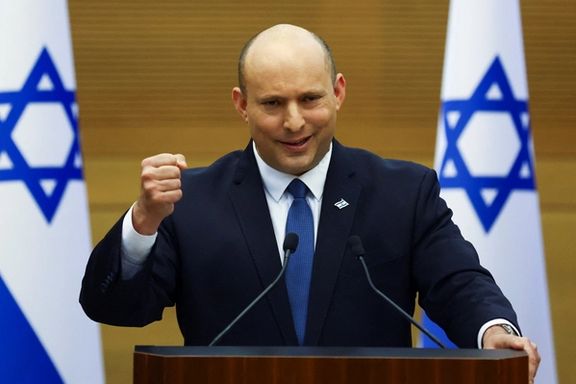
Prime Minister Naftali Bennett says the Islamic Republic will pay the price of targeting and threatening Israel on its own territory, implicitly confirming Israel’s role in the assassinations of IRGC officers.
During an interview with a New York Times columnist on June 21, Bennett said when Iranians “hit us through proxies or directly, they will pay a price in Iran.”
Describing what he calls his “Octopus doctrine,” he said Israel hits Tehran at the head of the octopus rather than its tentacles that have spread across the region.
Bennett added, “It turns out these guys are more vulnerable than they seem. The Iranian regime is rotten, corrupt — and incompetent.”
Bennet accused Tehran of “violating fundamental requirements” of the Nuclear Nonproliferation Treaty and seeking to strike Israel directly using unmanned aerial vehicle.
Late in May, the New York Times quoted an Israeli intelligence official as saying that Tel Aviv has informed American officials it was responsible for the killing of Colonel Hassan Sayyad-Khodaei -- a member of IRGC’ Quds Force in Tehran, adding that the Israelis killed him as a warning to Iran to halt the operations of a covert group within the Quds Force known as Unit 840, tasked with abductions and assassinations of foreigners around the world, including Israeli civilians and officials. Israel later denied the country took responsibility for the assassination.

A court in Iran has found the US government and many ex-officials responsible for the killing of Iranian nuclear scientists and demanded monetary compensation.
Iran’s High Council for Human Rights, which is part of the international affairs department of the judiciary, said on Thursday that the verdict was issued by Branch 55 of the Tehran Legal Court over Washington’s violations of international obligations through its support and assistance for Israel in committing “terrorist acts against nuclear scientists.”
IRNA said the lawsuit was filed by “the martyrs' families” over the physical, psychological and financial damage that they endured due to the killings.
According to the court ruling, $2.150 billion was due to the material and moral damages inflicted on the plaintiffs, and the same amount has been considered as punitive measures. The ruling, as reported by state media did not name the plaintiffs.
The move can be a belated reaction to many civil lawsuits in the United States seeking damages for Iran by those whose family members were killed in various acts of political violence, in which Iran had a direct or alleged role.
Until 2016, US courts had awarded plaintiffs a total of $56 billion to be paid by Iran or Iranian entities. A few more billions of dollars have been awarded since 2016.
Some have argued, that this large amounts of pending judgements against Iran is a factor in Iran’s calculations to reach a nuclear agreement to lift US sanctions. The monetary judgements could be a factor in deterring companies from investing in Iran or doing business with it even after sanctions would be lifted.
The defendants in the case are 37 American individuals and entities, including the US government, the State Department, the Department of Defense, the US National Security Agency, former presidents Barack Obama and Donald Trump, former Secretary of State Mike Pompeo, former Assistant Secretary of State Brian Hook, and former Secretary of Defense Ashton B. Carter.
But the defendants have no assets under Iranian jurisdiction to be seized, and the move by the Tehran court, under the government’s political control, could be a bargaining ploy or simply a propaganda act for domestic audiences.
The US has played an effective role in “establishing, strengthening and supporting Israel as a terrorist regime,” and each year donates hundreds of millions of dollars in direct economic and military support to the regime, the court ruling read.
Over the past years, several Iranian nuclear scientists have been the target of assassinations, which Iran blames on Israel. Between 2010 and 2012, four Iranian nuclear scientists — Masoud Alimohammadi, Majid Shahriari, Darioush Rezaeinejad and Ahmadi Roshan — were assassinated, while another, Fereydoon Abbasi, was wounded in an attempted murder. Roshan was the head of a department at the Natanz nuclear facility and was assassinated by a magnetic bomb.
In the latest case, Iran blamed Israel for the assassination of Mohsen Fakhrizadeh, said to be Iran’s top nuclear man, in November 2020 in a highly complicated operation east of the capital Tehran involving a remote-controlled one-ton automated weapon that had been smuggled into the country in pieces.
Iran has also accused Israel of sabotage operations against its nuclear facilities including an explosion in April 2021 that inflicted major damage to the Natanz uranium enrichment site.
Israel has never officially taken responsibility for any of these assassinations and sabotage operations but also has never denied involvement.
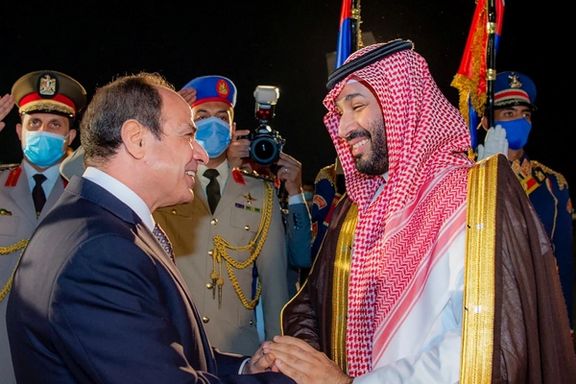
Leaders of Israel and Saudi Arabia see July’s regional trip by United States President Joe Biden as an important part of building a coalition against Tehran.
Yair Lapid, Israeli foreign minister and due to be prime minister when Biden arrives July 13, told US Secretary of State Antony Blinken by phone Tuesday that the president’s trip to Saudi Arabia and Israel “would have significant implications for the region and the fight against Iran, as well as immense potential to significantly improve regional stability and security," an Israeli foreign ministry statement said. Israeli Défense Minister Benny Gantz said Monday that Israel was building a US-sponsored air-defense system aimed at curbing drone or missile strikes by Iran and its allies.
Saudi Crown Prince Mohammad bin Salman was Tuesday in Egypt and Jordan, and is due to visit Turkey, repairing his image after the 2018 killing in Istanbul of Washington Post columnist Jamal Khashoggithat US intelligence concluded was done on the prince’s orders. In a move condemned by human rights groups, Turkey in April transferred the Khashoggi murder case to Saudi Arabia.
The Saudi crown prince, whose government has given significant financial support to the Egypt’s President Abdel Fattah al-Sisi who seized power in 2014 from the elected Muslim Brotherhood government, reportedly agreed $7.7 billion in agreements over food, transport, energy and pharmaceuticals. Egypt, the world’s largest importer of wheat, faces food shortages due to the Ukraine crisis.
While Saudi Arabia quietly favored Israel’s 2020 ‘normalization’ agreements with the United Arab Emirates and Bahrain, brokered by US President Donald Trump and advisor Jared Kushner, it has refrained from establishing diplomatic and formal ties with Israel.
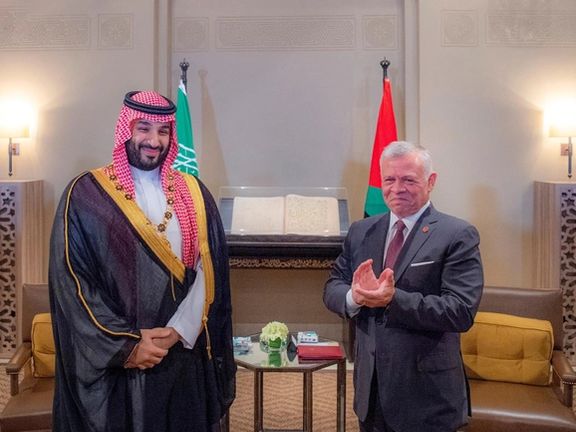
Prince Mohammad’s first visit to Jordan came as Jordan's economy, like Egypt’s, struggles with the knock-on effects of the Ukraine war. Business leaders and officials expressed hope the Saudis will now deliver on past promises of $3 billion investment.
Summit Next Month
The Saudi crown prince and Jordan’s King Abdullah also discussed a summit next month where Biden will meet leaders of the six Sunni-led states of the Gulf Corporation Council, as well as Iraq, Jordan, and Egypt. King Abdullah is credited with the phrase ‘Shia crescent,’ which he used in 2004 to describe Iran’s growing regional influence.
Israel and the UAE inked May 31 a free-trade agreementfollowing up their 2020 ‘normalization’ agreement, and March’s meeting in Negev, Israel, of the foreign ministers of Israel, Bahrain, Egypt, Morocco, the UAE and the US, is planned as an annual event.
Israel and Saudi Arabia share concerns over Iran’s foreign policy os supporting militant proxies in the region, including Hezbollah and Ansar Allah in Yemen and have supported those who were willing to oppose Iranian influence. The Israeli and Saudi leadership have also opposed the 2015 Iran nuclear deal, from which Trump withdrew the US in 2018 and which the Biden administration says it wants to restore.
But while Biden came to office committed to recalibrating Washington’s links with Saudi Arabia, especially in asserting human rights, and initially dealt with Riyadh frostily, relations have thawed, partly as the US feels the need for increased Saudi oil exports to bear down on the rising cost of gasoline.
Domestic politics are also at work in Israel. The government Monday called a national election – the fifth in three years. Prime Minister Naftali Bennett has trumpeted a more assertive approach to Iran than opposition leader and former premier Benjamin Netanyahu, who hopes to return to power.
While there are Israeli security experts who see Bennett’s approach as counter-productive and who disregard talk of an Israeli-Sunni alliance, Bennett has used the phrase ‘Octopus Doctrine’ to describe drone or sabotage attacks on Iran’s nuclear and military sites, a campaign widely believed to also include killing scientists, engineers, and military officers.
With reporting by Reuters
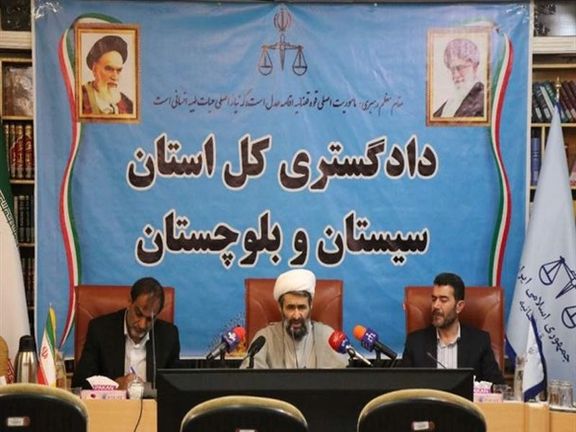
Iran says the three Mossad agents arrested in southeastern Sistan-Baluchestan province In April sought to assassinate some Iranian nuclear scientists.
The prosecutor of Zahedan said on Tuesday that the three Mossad-linked agents will put on trial in the near future.
"The three were planning to assassinate our nuclear scientists according to intelligence assessments," Mehdi Shamsabadi said, without specifying the nationality of the detainees.
Late in April, Iran’s Intelligence Ministry announced the arrest of “three spies” by "a court order" over links to the Israeli intelligence agency, adding “that these individuals were involved “in the dissemination of classified information and documents.”
The Islamic Republic periodically announces it has busted “terrorist” or spying networks, but it rarely provides any follow-up news or concrete information and almost never holds public trials. In some cases, individuals convicted of ties with Israel have been executed.
In October, Iran announced that ten people were arrested for “links with intelligence services” of regional “adversaries” without disclosing which intelligence service had established the alleged network inside the country. But the use of the term ‘regional adversary’ could refer to Israel which is suspected of conducting spectacular sabotage acts against Iran’s nuclear, military and strategic economic targets since July 2020, or it could mean Saudi Arabia.
Tensions have risen between Israel and Iran as the Biden administration has tried to restore the 2015 nuclear agreement. Israel regards the prospect of Iran developing nuclear weapons as a threat to its existence and could act independently to stop Iran's nuclear program should the international community fail to do so.